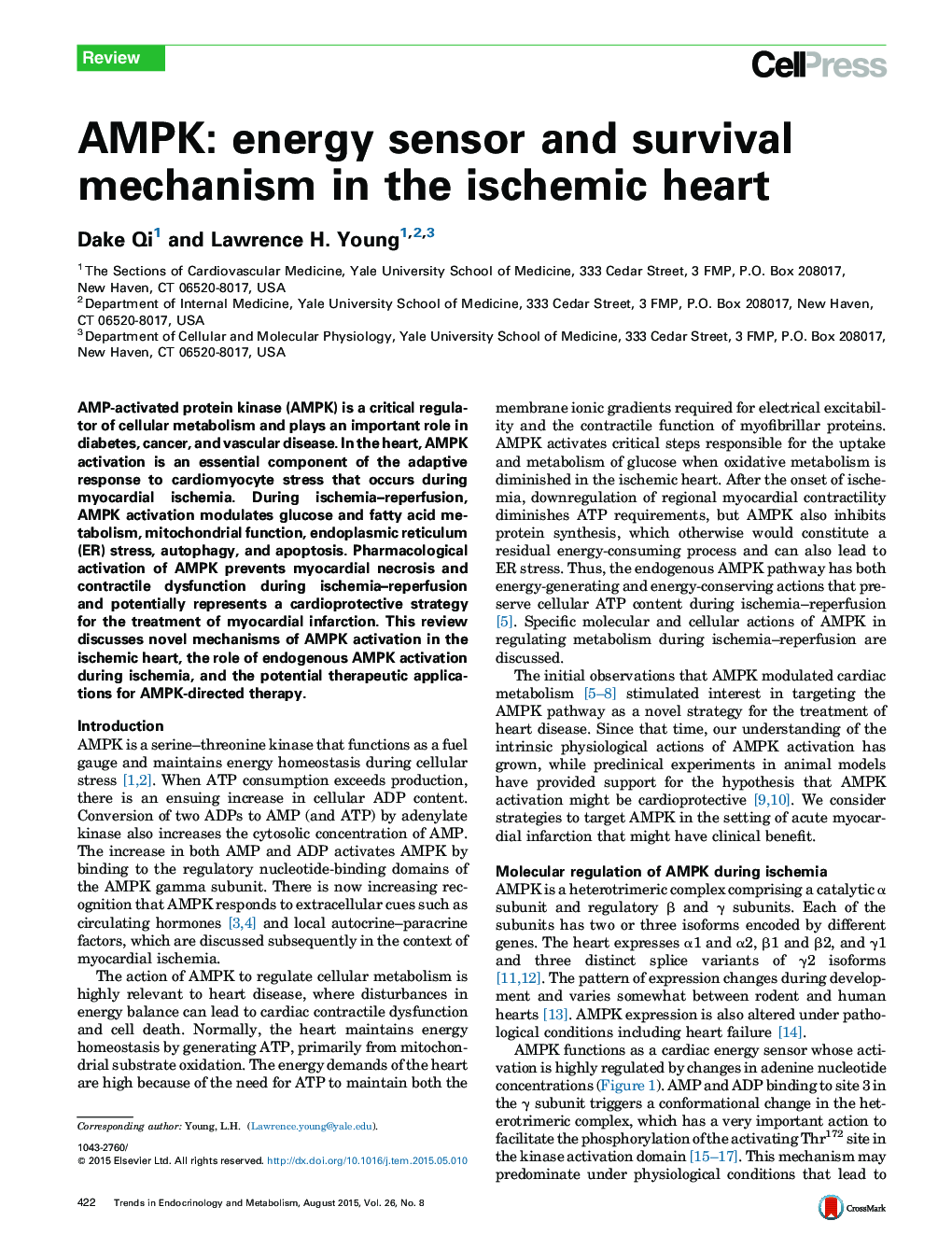| کد مقاله | کد نشریه | سال انتشار | مقاله انگلیسی | نسخه تمام متن |
|---|---|---|---|---|
| 2810143 | 1158409 | 2015 | 8 صفحه PDF | دانلود رایگان |

• Intrinsic AMPK activation protects the heart from injury during ischemia–reperfusion.
• AMPK orchestrates metabolic and cellular responses to ischemia.
• Secreted cardiokines have autocrine–paracrine effects to modulate AMPK activation.
• Pharmacological AMPK activation has a cardioprotective effect during ischemia–reperfusion.
AMP-activated protein kinase (AMPK) is a critical regulator of cellular metabolism and plays an important role in diabetes, cancer, and vascular disease. In the heart, AMPK activation is an essential component of the adaptive response to cardiomyocyte stress that occurs during myocardial ischemia. During ischemia–reperfusion, AMPK activation modulates glucose and fatty acid metabolism, mitochondrial function, endoplasmic reticulum (ER) stress, autophagy, and apoptosis. Pharmacological activation of AMPK prevents myocardial necrosis and contractile dysfunction during ischemia–reperfusion and potentially represents a cardioprotective strategy for the treatment of myocardial infarction. This review discusses novel mechanisms of AMPK activation in the ischemic heart, the role of endogenous AMPK activation during ischemia, and the potential therapeutic applications for AMPK-directed therapy.
Journal: - Volume 26, Issue 8, August 2015, Pages 422–429